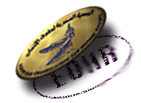
This document is published online by Derechos Human Rights. Derechos works against violations to human rights and humanitarian law all over the world.

The Egyptian Organization for Human Rights
PRESS
RELEASE
In a letter to the EOHR, the Center for Religious Freedom in Washington affirms that the Sunday Telegraph disseminated false allegations |
Cairo, 21 November 1998
In a letter from the Washington-based Center for Religious Freedom to EOHR's secretary general on 20 November 1998, the Middle East research director makes important clarifications denying any relation between EOHR's report on the incidents of Al-Kosheh village and the campaign launched by the London-based Sunday Telegraph newspaper, which alleged that Copts are subjected to persecution in Egypt. The letter demonstrates even further that the EOHR was not involved in any campaign of this sort, and refutes the allegations made by some Egyptian newspapers against the EOHR in that regard. In his letter, the director expresses his respect and admiration for the role of the EOHR in defending the rights of individuals and communities in Egypt regardless of their creed, gender, or religion. He refers to an article published by EOHR's secretary general in Al-Shaab newspaper, on 16 November 1998, in which the organization Freedom House was accused of providing the Sunday Telegraph with false information on the incidents of Al-Kosheh village. The letter added that Freedom House, of which the Center for Religious Freedom is a member, is the oldest human rights organization in America, as it was founded in 1941, and that the center has been at the forefront in the defence of religious freedom for Muslims, Christians, Buddhists, and others. With respect to the articles published by the Sunday telegraph, the letter clarifies that Christina Lamb contacted the Center for Religious Freedom asking for information on the facts surrounding the events of Al-Kosheh. The center then forwarded to her the EOHR report. It adds that he protested the absurd claims by the Sunday Telegraph that Christians were "crucified" and that "scores of Christian women and children were raped". The letter stresses that these allegations are not only false, but are also counterproductive. The EOHR reveals the content of the letter to clarify its stance regarding the allegations raised by its report on Al-Kosheh village, and on the allegations of religious persecution in Egypt in general, after some Egyptian newspapers deliberately tried to harm EOHR's image.
